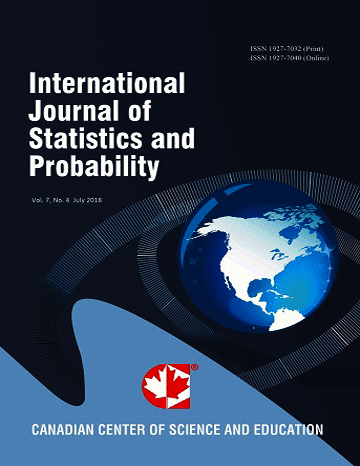Statistical Evaluation of Face Recognition Techniques under Variable Environmental Constraints
- Louis Asiedu
- Atinuke O. Adebanji
- Francis Oduro
- Felix O. Mettle
Abstract
Experiments have shown that, even one to three day old babies are able to distinguish between known faces (Chiara, Viola, Macchi, Cassia, & Leo, 2006). So how hard could it be for a computer? It has been established that face recognition is a dedicated process in the brain (Marque´s, 2010). Thus the idea of imitating this skill inherent in human beings by machines can be very rewarding though the idea of developing an intelligent and self-learning system may require supply of sufficient information to the machine. This study proposes multivariate statistical evaluation of the recognition performance of Principal Component Analysis and Singular Value Decomposition (PCA/SVD) and a Whitened Principal Component Analysis and Singular Value Decomposition algorithms (Whitened PCA/SVD) under varying environmental constraints. The Repeated Measures Design, Paired Comparison test, Box’s M test and Profile Analysis were used for performance evaluation of the algorithms on the merit of efficiency and consistency in recognizing face images with variable facial expressions. The study results showed that, PCA/SVD is consistent and computationally efficient when compared to Whitened PCA/SVD.
- Full Text:
 PDF
PDF
- DOI:10.5539/ijsp.v4n4p93
Index
- ACNP
- Aerospace Database
- BASE (Bielefeld Academic Search Engine)
- CNKI Scholar
- DTU Library
- Elektronische Zeitschriftenbibliothek (EZB)
- EuroPub Database
- Excellence in Research for Australia (ERA)
- Google Scholar
- Harvard Library
- Infotrieve
- JournalTOCs
- Mir@bel
- Open policy finder
- ResearchGate
- Technische Informationsbibliothek (TIB)
- UCR Library
- WorldCat
Contact
- Wendy SmithEditorial Assistant
- ijsp@ccsenet.org
